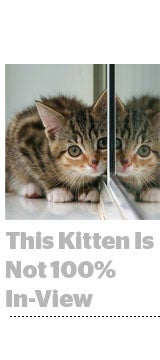 Remember when Facebook said it wouldn’t allow independent viewability verification on its properties? And remember when WPP’s GroupM agencies Unilever, Kellogg and others were extremely displeased with that proposition and said they would curtail spending on platforms, including Facebook and YouTube, where third-party viewability tags weren’t welcome?
Remember when Facebook said it wouldn’t allow independent viewability verification on its properties? And remember when WPP’s GroupM agencies Unilever, Kellogg and others were extremely displeased with that proposition and said they would curtail spending on platforms, including Facebook and YouTube, where third-party viewability tags weren’t welcome?
Well, Facebook announced Thursday that it’s planning to partner with ad analytics company Moat to independently measure Facebook video ads. Although the deal is inked, one source told AdExchanger that the actual implementation of the tags – which will roll out to video first, followed by news feed ads and Instagram ads down the line – likely won’t take place until later this year.
Facebook also said it’s going to start allowing advertisers to buy 100% in-view impressions, if they so choose, for ads delivered in the news feed, including text, photo, link and video ads. Until now, Facebook was unwavering in its stance that ads be classified as viewable the instant any part of the ad enters the screen.
Although Daniel Slotwiner, Facebook’s director of advertising research, declared at AdExchanger’s Clean Ads I/O conference in June that Facebook would never make changes to or investments in its platform to placate media buyers – ”We might not have [more than 1] billion users if we made a bunch of decisions on that basis,” he said – it seems likely that Facebook was ultimately swayed by the needs and the checkbooks of media buyers and brand marketers after all.
There’s quite a lot of money at stake. Mindshare client Unilever alone spent an estimated $7 billion on advertising and marketing in 2014, according to The Wall Street Journal.
GroupM, the parent company to Mindshare, has been particularly vocal about its dislike of Facebook’s former practice of self-reporting on viewability. As John Montgomery, COO of GroupM Interaction, North America, stated bluntly to Facebook’s Slotwiner onstage at the Clean Ads show, “You can’t measure yourself.”
And that’s partially because GroupM, Unilever and others have bristled at Facebook’s definition of viewability, which was seen as less stringent than their own requirements.
In Facebook’s view, viewability is achieved the moment an ad enters the screen of a desktop browser or a mobile app. According to the Media Rating Council, video ad impressions are counted when at least 50% of the ad is in view for at least two seconds. GroupM takes it a step further, demanding that 100% of the ad be in view for video, with audio on and autoplay off.
With Moat on board, advertisers and agencies will be able to get independent verification for their desired flavor of viewability metric.
While the partnership with Moat represents what GroupM Chief Investment Officer Rino Scanzoni called “progress,” he also pointed to the strong words spoken by WPP CEO Martin Sorrell at DMEXCO on Wednesday as a clear indication of the agency’s position on viewability.
Among other things, Sorrell noted during a presentation at the conference that “Facebook has a lot of work to do in terms of video and video viewability.”
Although Facebook is admittedly late to the third-party party, other publishers, including Yahoo, Fox, NBC, ABC and Hulu have already embraced third-party tags to verify online viewability. Independent measurement will likely trigger more spending on Facebook.
“Viewable ads based on our metrics verified by a third party is what we are interested in from an investment standpoint,” Scanzoni said. “It is clear that the marketplace has embraced the need for third-party verification.”
In addition to Facebook, Moat’s client list includes Unilever, Kellogg, Hulu, The New York Times, The Washington Post, The Wall Street Journal and Twitter.














